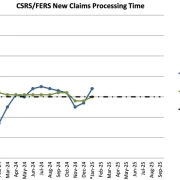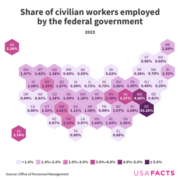75,000 Workers Took Trump, Musk Government Buyout
75,000 Workers Took Trump, Musk Government Buyout
Roughly 75,000 federal workers across government have accepted a buyout offer, taking an unusual deal headed by the Trump administration as it looks to reduce the federal workforce. The figure is 3.75 percent of the nation’s 2 million federal employees.
A senior administration official confirmed the figure in the hours after a court rejected a bid by unions to quash the program. Follow link to read more. https://thehill.com/regulation/court-battles/5142311-opm-75000-workers-took-trump-musk-government-buyout/





